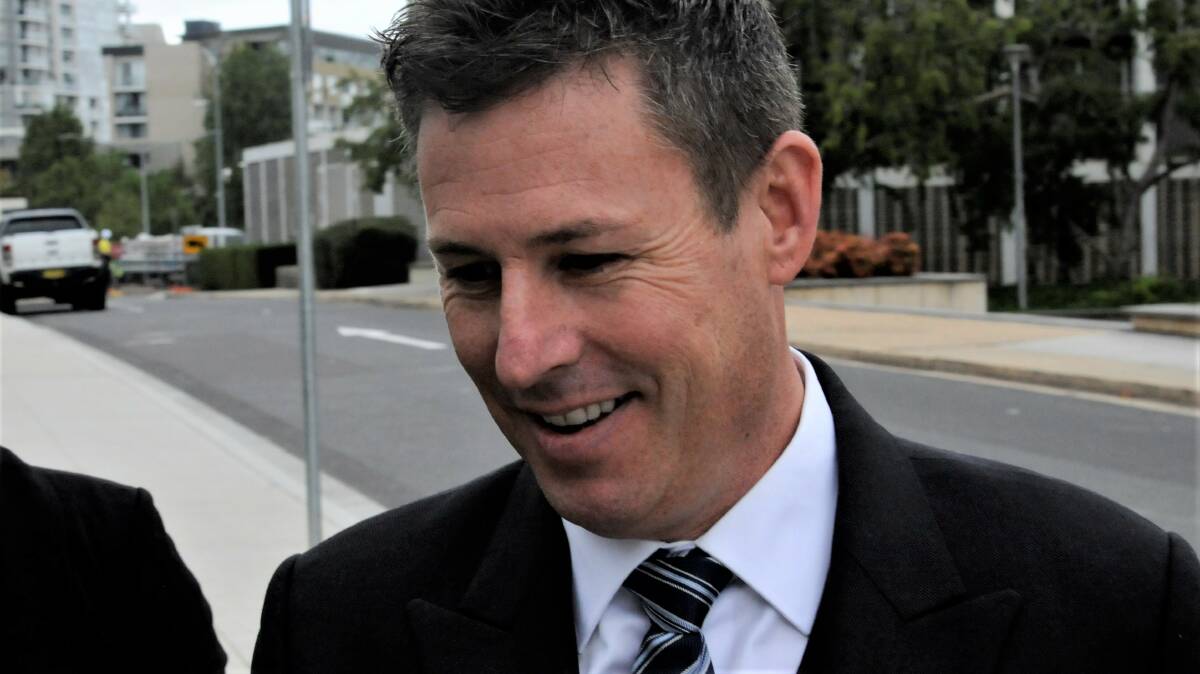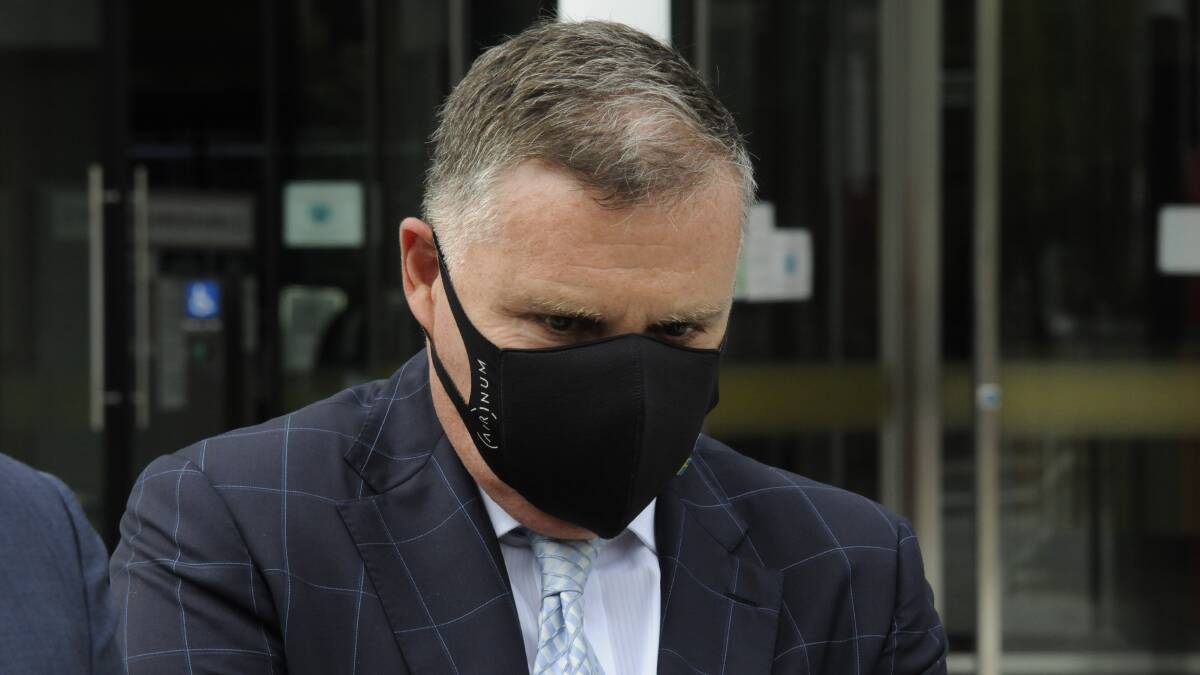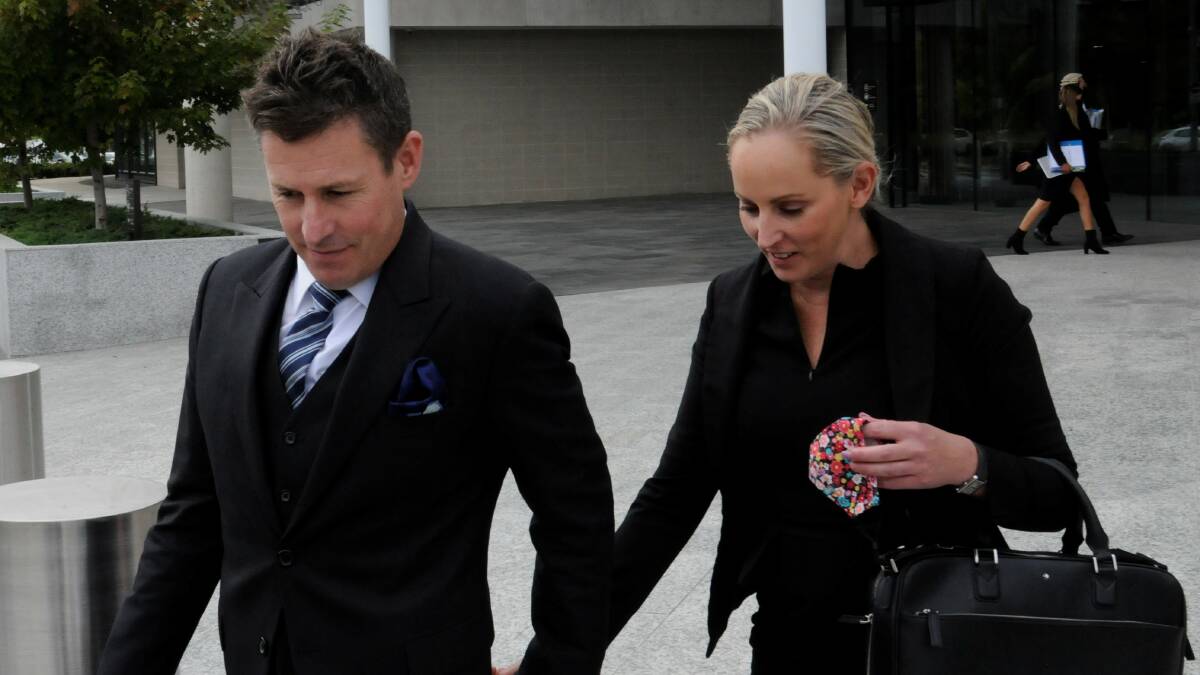
A Canberra lawyer accused of a money laundering conspiracy has been denied access to documents he had hoped would help him prove police targeted him unlawfully.
Ben Aulich, 49, was dealt a blow in the ACT Magistrates Court on Tuesday as a magistrate said he could not be satisfied the attempt to obtain the material in question was anything other than "a fishing expedition".
Mr Aulich and accountant Michael Papandrea, 55, have both pleaded not guilty to a charge of conspiring to engage in money laundering.
The solicitor also denies a charge of recruiting Mr Papandrea to engage in criminal activity.
The court has previously heard the pair allegedly plotted to launder the proceeds of an illegal cigarette importation, which an undercover police officer anticipated receiving.
The undercover officer posed as a client of Mr Aulich's law firm for about eight months, starting in April 2020 and ending when the accused pair were arrested and granted bail.

Mr Aulich last month launched an attack on the validity of the secretive police probe that targeted him and two unnamed others, claiming Australian Federal Police deputy commissioner Ian McCartney was wrong to authorise the "major controlled operation".
The 49-year-old's barrister, David Campbell SC, argued there was "nothing [police] could have had" that would have justified the probe being approved in accordance with the law.
He told the court Mr Aulich therefore had "a very serious argument" that any evidence obtained during the operation ought to be deemed inadmissible.
In a bid to prove the operation was invalid from its conception, Mr Aulich's lawyers issued the ACT's chief police officer, AFP Deputy Commissioner Neil Gaughan, with a subpoena.
The subpoena sought that police produce the application for the major controlled operation, as well as any supporting material put before the authorising officer.
But Deputy Commissioner Gaughan applied for the court to set the subpoena aside, with his barrister, Andrew Berger QC, arguing Mr Aulich had disclosed "no legitimate forensic purpose" that would warrant that material being handed over.

Mr Berger described Mr Aulich's attempt to obtain the application as "a classic fishing expedition" and added that there was "an extremely strong public interest" in preventing its disclosure.
After considering his decision for more than a month, magistrate Michael Crompton set the subpoena aside on Tuesday and therefore denied Mr Aulich access to the application.
In doing so, he said Mr Aulich remained free, at trial, to challenge the validity of the police operation and question the admissibility of whatever evidence flowed from it.
But the magistrate said Mr Aulich was not entitled to seek documents "merely to try to uncover whether there is material available to [establish] a case of illegality or impropriety".
He was therefore not satisfied the 49-year-old had demonstrated a "legitimate forensic purpose", or that the pursuit of the material was anything but "a fishing expedition".
Following the ruling, Mr Campbell signalled that Mr Aulich might appeal.
MORE COURT AND CRIME NEWS
- Wounds run deep as community comes to terms with tragedy
- 'No winners': Cop acquitted of murdering Aboriginal teen
- Man accused of stealing police car to flee will be kept in custody
- 'Outstanding': New judges to take Supreme Court to 'next level'
Prosecutor Skye Jerome also told Mr Crompton, a NSW magistrate who is hearing the matter because of Mr Aulich's standing in the ACT's legal community, that she hoped to amend the conspiracy charge.
The court heard she wanted to delete two names from a list of four alleged co-conspirators, which would leave only Mr Aulich and Mr Papandrea.
The charge currently alleges the pair conspired with Mr Aulich's former business partner Bridie Harders, against whom charges have previously been withdrawn, and the undercover police officer, who used the name Alex Torosian.
Mr Campbell and Kamy Saeedi, a lawyer for Mr Papandrea, indicated they would oppose the amendment.
Mr Crompton will hear arguments about that issue on June 20.







